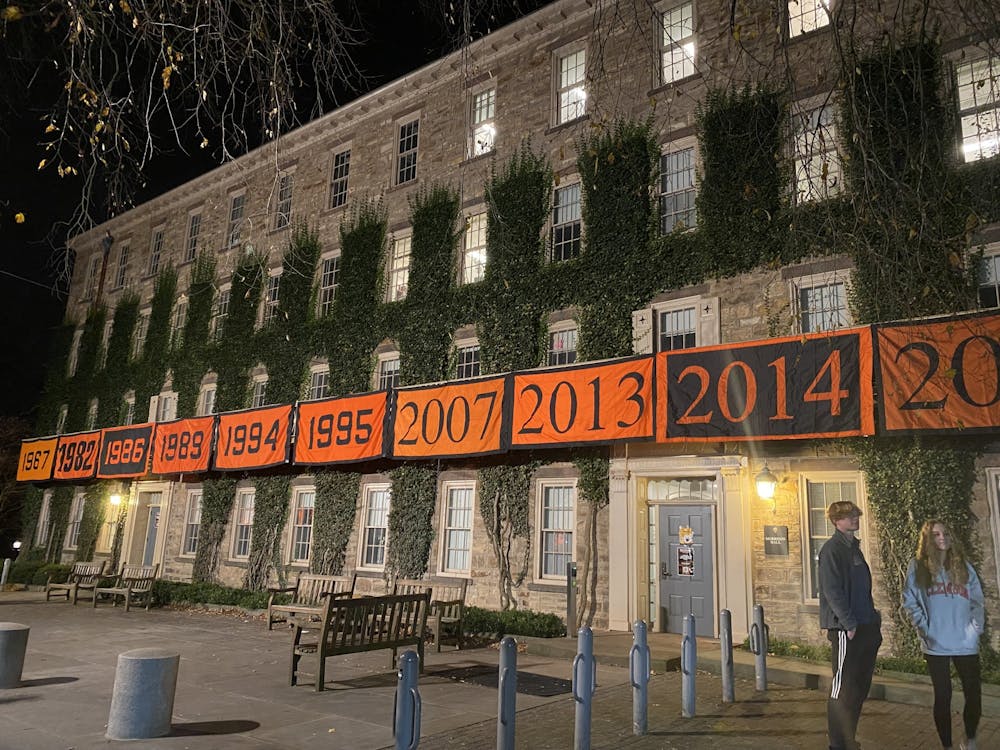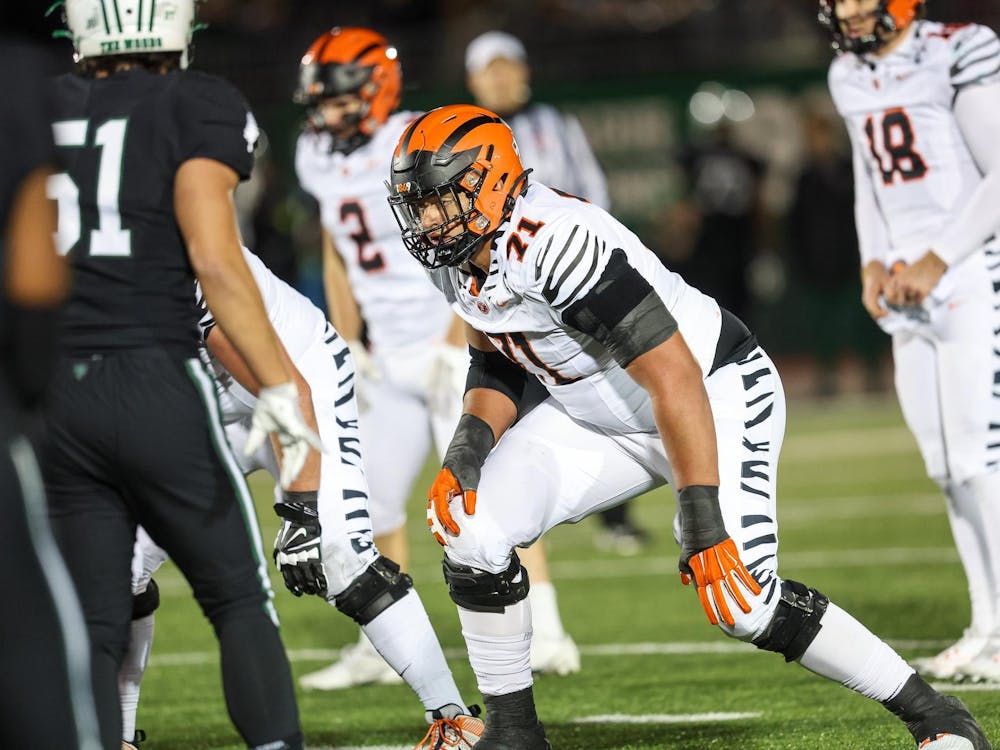Princeton’s proclivity for celebrating excellence in sports with fire is the result of an evolving tradition. In the late 19th century, the bonfire started as a way to celebrate a baseball win that occurred over summer break, but has shifted in meaning over the years. It became an opportunity to generate hype for the football season and is now a way to recognize the football team’s wins over Harvard and Yale. Now, it’s time for the bonfire to make another evolution: To recognize the not-so-new era of female excellence in sports, Princeton should institute a bonfire tradition to celebrate a Big Three win for a women’s sports team as well.
The first bonfire celebration seems to have been held in September 1896, when the student population decided to celebrate the baseball team’s win over Yale that past spring. It was conceived as an opportunity to formally channel the campus’s enthusiasm, as the win had occurred when most students were away from campus. First-years gathered wood from local areas and built the bonfire over the cannon behind Nassau Hall in the hours leading up to the event. The speaker at the celebration noted a desire to see the success of the spring rounded out by a football victory over Yale that fall.
Subsequent iterations of the bonfire have celebrated winning the 1911 baseball championship and the football team’s victory over Yale in 1919 at which the men were celebrated for their “determination and fighting spirit, that same spirit which led every man on the team to enlist in the service of his country.” Today’s bonfire looks quite different: The most recent bonfire, in 2021, commemorated beating Harvard and Yale’s football teams, with speakers referencing the joy of a post-COVID return to “full Princeton life.” Across the decades, the bonfire has adapted to the needs and the desires of the contemporary community.
But in its current form, the bonfire is not accomplishing that goal. Celebrating only the football team sends the message that football is Princeton’s most important sport; that their successes, and only their successes, are worth the entire school’s attention, and that they take priority over both other men’s teams and all women’s teams.
The bonfire, like many Princeton traditions, developed long before women were admitted to the University as students. This isn’t a reason not to continue using these celebratory formats, but it is worth rethinking their utility in the context of the modern campus landscape. It’s time to develop these traditions to recognize those communities that have only been included in Princeton’s later eras. Why should only male success be celebrated with fire?
Female athletes have been representing Princeton in competition since 1970 — it’s time to put community money, effort, and commitment into celebrating their wins. Although any women's team could be appointed as a bonfire-earning one, I propose that we officially institute a policy of another celebratory bonfire when the softball team wins their series against both Harvard and Yale during their season. This stays true to the original practices of the bonfire tradition: celebrating a bat-and-ball-using sport. Furthermore, it would spread out the bonfire joy across the year, getting the community invested in sports across the seasons.
As an opportunity to channel community energy and spirit, the bonfire is a powerful tool to mark important Princeton sports developments. This would be a wonderful way to uplift a women’s sports team and would turn a tradition that continues a legacy of prioritizing male athletic accomplishments into an inclusive way to honor teams based on their success alone in a pursuit that brings everyone together: beating those lesser-ranked schools.
Abigail Rabieh is a junior in the history department from Cambridge, Mass. She is the head Opinion editor at the ‘Prince’ and can be reached by email at arabieh@princeton.edu.








